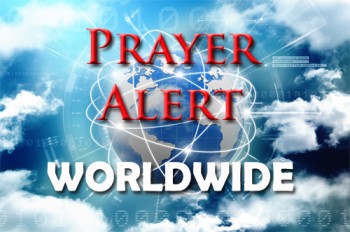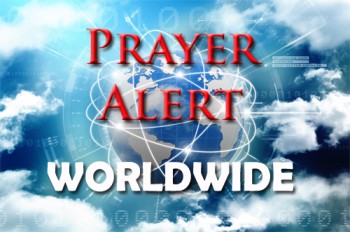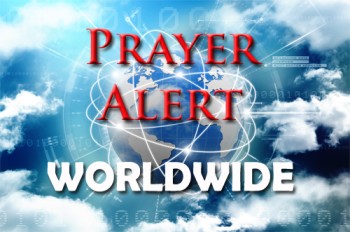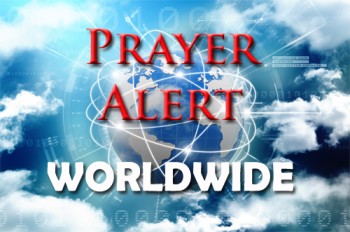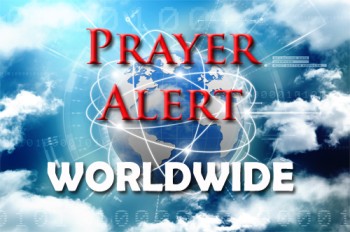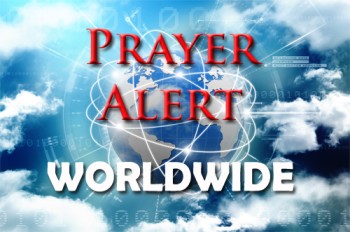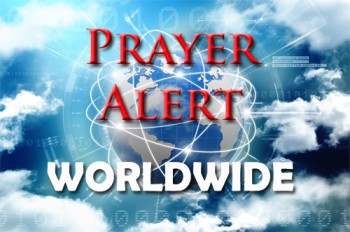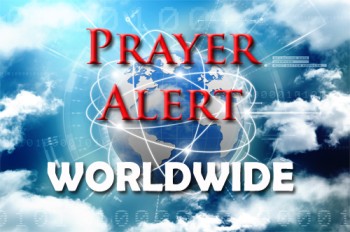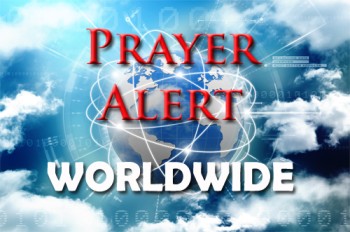Displaying items by tag: israel
Gaza: ceasefire fragile after Israeli airstrikes kill 100+
On 29 October, Hamas reported that Israeli airstrikes in Gaza had resulted in at least 104 Palestinian deaths, including 46 children. Israel's defence minister accused Hamas of an attack in Gaza which killed an Israeli soldier, and of breaching the terms on returning deceased hostages' bodies. Although Hamas denied involvement in the attack, asserting its commitment to the ceasefire, the IDF said it had targeted what it described as ‘terror targets and terrorists’, killing numerous individuals, including thirty armed group commanders. The strikes caused significant destruction, hitting homes, schools, and residential blocks: each side has accused the other of ceasefire violations. Despite the violence, Donald Trump downplayed the likelihood of renewed hostilities, supporting Israel's right to retaliate. The conflict shows the fragile nature of the ceasefire and the ongoing volatility in the region – which has also been highlighted by the call by Amnesty International to investigate whether a US airstrike on Yemen in April was a war crime. See
Gaza: conflicting emotions and remaining challenges as ceasefire takes hold
Israel and Hamas have taken a crucial first step toward ending the devastating two-year war in Gaza, releasing hostages and prisoners under a US-brokered ceasefire. The exchange brought immense relief and celebration across Israel and Gaza, even as both sides remain wary. Yet, the deeper challenges - Hamas’s refusal to disarm, Israel’s reluctance to accept a Palestinian state, and questions over Gaza’s future governance - still threaten the deal’s stability. For many, the sight of freed hostages reuniting with loved ones offered a rare moment of shared humanity amid years of grief. In Gaza, war-worn families welcomed returning prisoners but faced the grim reality of shattered homes and a crippled economy. As Donald Trump signed a declaration for peace, witnessed by twenty world leaders (see ), both Israelis and Palestinians have to grapple with the cost of vengeance and the fragile hope of renewal. The region stands at a crossroads between restoration and relapse into conflict.
South Africa: Ramaphosa still pursuing genocide case against Israel
Cyril Ramaphosa has reaffirmed that the new Gaza ceasefire will not alter his country’s genocide case against Israel at the International Court of Justice. Speaking before parliament, he said South Africa remains committed to pursuing justice, adding that ‘true reconciliation requires accountability’. Filed in December 2023, the case accuses Israel of committing genocidal acts in Gaza and has drawn support from countries including Spain, Ireland, Turkiye, and Colombia. The ICJ has already ordered provisional measures for Israel to prevent further atrocities and allow humanitarian aid, though compliance has been limited. With more than 67,000 Palestinians reported killed since October 2023, global human rights organisations are continuing to press for justice. South Africa also co-chairs the Hague Group, a coalition formed in January 2025 to hold Israel accountable through legal, diplomatic, and economic measures beyond the ICJ proceedings.
Gaza: what we know so far about ceasefire agreement
After three days of indirect talks in Egypt, Donald Trump announced that Israel and Hamas have ‘signed off’ on the first phase of his twenty-point peace plan to end the Gaza war. The agreement, expected to be approved by Israel’s cabinet, includes an immediate ceasefire and the release of all remaining living hostages - around 20 people - within 72 hours. Israel will begin withdrawing troops to a line controlling roughly 53% of Gaza, while Hamas will return the bodies of 28 dead hostages. In exchange, Israel will release about 250 Palestinian prisoners serving life sentences and 1,700 Gaza detainees, but not including key figures like Marwan Barghouti. Hundreds of aid trucks will begin entering Gaza daily to address famine conditions. Later phases of the plan envision Gaza’s demilitarisation, temporary rule by Palestinian technocrats under an international ‘Board of Peace’ chaired by Trump, and eventual transfer to a reformed Palestinian Authority - points that remain deeply contentious between Israel and Hamas. Earlier in the week, on 7 October, 30,000 gathered in Tel Aviv in an emotional event marking the second anniversary of Hamas’s attacks: see
Gaza: Hamas likely to reject Trump’s peace plan
A senior Hamas leader has said the group is likely to reject Donald Trump’s peace plan for Gaza, arguing it favours Israel while ignoring Palestinian concerns. The plan requires Hamas to disarm, surrender its weapons, and release all hostages at once - conditions the group deems unacceptable. It also proposes an International Stabilisation Force, which Hamas views as a foreign occupation. While Benjamin Netanyahu publicly accepted the plan, he has already contradicted key provisions, insisting Israel must retain a military presence in Gaza and pledging to resist a Palestinian state. Palestinians in Gaza expressed desperate support for the proposal - not out of agreement with its terms, but in hopes of ending war, devastation, and famine. Critics warn that rejection could allow Israel to intensify its campaign with international backing. More than 66,000 deaths have been reported in Gaza since October 2023.
Israel has committed genocide, says UN inquiry
A UN commission of inquiry has concluded there are reasonable grounds to believe Israel has committed genocide against Palestinians in Gaza since the 2023 war with Hamas began. The 72-page report cites four of the five acts defined under the 1948 Genocide Convention - killing, causing serious harm, deliberately inflicting life-destroying conditions, and preventing births - along with statements by Israeli leaders, as evidence of genocidal intent. It highlights widespread civilian deaths, collapsed infrastructure, repeated displacement, and a UN-declared famine. Commission chair Navi Pillay said speeches by Benjamin Netanyahu and other officials, combined with Israel’s military conduct, support the inference of intent to destroy those living in Gaza in whole or part. The commission also warned other nations of their legal duty to prevent and punish genocide, noting potential complicity if they fail to act. Israel’s government rejected the findings as false and biased, arguing that its operations are targeting Hamas in self-defence and comply with international law. Meanwhile, the long-awaited offensive by the Israeli military against Gaza City has begun: see
Qatar: Israeli airstrike on Hamas leaders
The dramatic airstrike by Israel on Hamas leaders in Qatar on 9 October marks a new twist in a war already destabilising the wider Middle East. Qatar, long considered Hamas’ political base and a central mediator in ceasefire negotiations, condemned the attack as a flagrant breach of international law, while regional powers including the UAE and Saudi Arabia denounced it as an assault on sovereignty. The strike targeted Khalil al-Hayya, Hamas’ exiled Gaza chief and top negotiator, but reports indicate he and others survived. Coming just a day after Hamas’ armed wing killed six people in Jerusalem, the move risks collapsing fragile ceasefire talks. In Gaza City, Israeli evacuation orders have spread panic among civilians, many already displaced and trapped in worsening conditions. This year Israel has struck Hezbollah in Lebanon, Houthis in Yemen, and Iranian-linked targets in Syria and Iran, heightening fears of a regional war.
Israel / Gaza: attack on hospital condemned, famine officially declared, Pope’s plea
A deadly double strike on a hospital in Gaza has drawn sharp international condemnation. At least twenty people were killed, including five journalists and four health workers, when two consecutive strikes targeted the facility. The UN, describing the attack as ‘unacceptable’, called for those responsible to face justice. The IDF claimed the strikes were aimed at a Hamas-operated camera, but did not explain why a second strike was deemed necessary. There have been escalating protests inside Israel, with families of hostages and supporters demanding that Netanyahu agree to a ceasefire deal. The humanitarian crisis is deepening across Gaza: a UN-backed body has confirmed that a famine is taking place in Gaza city (a claim described as an ‘outright lie’ by Israel), and most of the territory’s population faces dire shortages of shelter, food, and medical care after months of war. Pope Leo XIV has joined the Latin and Greek Orthodox patriarchs of Jerusalem in a powerful plea for an immediate end to the war: see
Gaza: Hamas agrees to Qatar’s latest ceasefire proposal
Qatar has emphasized the urgent need for a ceasefire in Gaza, highlighting what it called a ‘positive response’ from Hamas to a new truce proposal. The plan, similar to an earlier US-brokered offer previously accepted by Israel, calls for a sixty-day pause in fighting, the release of some hostages in exchange for hundreds of Palestinian prisoners, expanded humanitarian aid, and negotiations toward a lasting settlement. Israel, however, is maintaining its stance that the war will continue until Hamas disarms and all hostages are freed. Foreign minister Israel Katz says that fear of Israel’s plans to occupy Gaza city is bringing Hamas back to the negotiating table. Meanwhile, conditions in Gaza remain dire. The UN has warned that the minimal aid entering Gaza is far from sufficient, with hunger-related deaths increasing. Officials blame Israeli restrictions on humanitarian supplies, warning of imminent famine. Breaking news: Israel is calling up 60,000 reservists in preparation for its planned invasion of Gaza. See
Israel: plans to build 3,000 houses in contested West Bank settlement area
Far-right finance minister Bezalel Smotrich has announced plans to approve over 3,000 housing units in the contested E1 settlement area between Jerusalem and Maale Adumim in the occupied West Bank. Long frozen due to international opposition, the project would physically separate East Jerusalem from the rest of the West Bank, undermining prospects for a contiguous Palestinian state. Smotrich declared the plan would ‘bury the idea’ of such a state, describing it as an assertion of Israeli sovereignty. Settlement expansion is considered illegal under international law, though Israel disputes this. The announcement comes amid growing international momentum toward recognising Palestinian statehood, which Israel opposes. Critics warn that the move deepens annexation, fuels conflict, and blocks the path to peace. Smotrich, together with national security minister Itamar Ben-Gvir, was sanctioned by the UK in June over ‘repeated incitements of violence against Palestinian communities’ in the occupied West Bank: see
